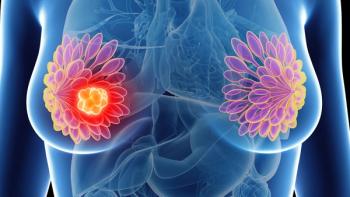
The Gift of Presence: Finding Meaning in Everyday Oncology Nursing
Through the highs and lows of working in oncology nursing, being present with colleagues and patients alike is a gift.
Oncology nursing exists at the intersection of science and humanity. As the year draws to a close, I find myself reflecting on what it truly means to be present with my patients. Our work demands precision—dosing, documentation, safety checks—but the moments that define us are rarely technical. They happen in the space between data and dialogue, when a patient’s vulnerability meets our reassurance. It’s in those spaces that I’ve come to understand the true meaning of presence.
At the start of each shift, the rhythm is familiar. I review the day’s assignment, anticipate which treatments need extra time, and join our safety huddle before patients arrive. The buzz of pumps begins, and my focus shifts from efficiency to safety to compassion. Each patient has the right to know who I am, what I’m administering to them, and why. I make eye contact, listen for what’s said and unsaid, and try to meet each person where they are. My patients are among the kindest people I know, though illness sometimes tests patience. On hard days, I offer grace. Presence begins here—in the quiet discipline of showing up fully.
For many people with cancer, each treatment day carries its own blend of hope and fear. As oncology nurses, we learn to hold both emotions at once. We witness courage in ordinary moments: a patient walking independently after weeks of weakness, a caregiver learning to give an injection, a quiet smile exchanged between partners. Our work reminds us that meaning often hides in the smallest acts.
The most powerful thing we offer is not a medication or a skill; it’s presence. Presence steadies a hand during uncertainty and makes space for silence when there are no words. It is noticing when a patient seems withdrawn and asking gently, “How are you managing today?” It is staying the extra minute while a family member voices concern.
When I meet a patient for their first treatment, I can sense that they are scared before a word is spoken. Shoulders tighten, hands fidget, eyes shift between the IV pump and my face. I tell them the first day is often the hardest because the unknown is heavy. I aim to prepare, not alarm, and remind them that they have choices. By the end of that first infusion, most are exhausted but proud. They have faced the fear and come through it. That moment of relief reminds me how presence and communication can transform fear into strength.
Our patients’ stories often overshadow our own, yet oncology nurses carry invisible emotional weight. We balance compassion with exhaustion, grief with gratitude. There are days I drive home in silence, replaying conversations in my mind, hoping I said the right thing—or simply enough. Within teams, we create small rituals that keep us grounded: a shared cup of coffee before the first infusion, a brief huddle to debrief a difficult case, a thank-you note left on a coworker’s workstation. These gestures are how we care for one another so that we can continue to care for our patients.
Patients continually remind us what endurance and grace look like. Some bring cookies for the staff; others simply say, “See you next week,” as though it’s the most natural thing in the world to return for chemotherapy. They teach us to stay hopeful without denying reality, to find gratitude in partial improvement, to trust strangers with their veins and their vulnerability. Their resilience reframes what strength means.
We talk about resilience in oncology, but what we witness goes deeper. It is grace: the grace to face uncertainty, to love through difficulty, and to find light even when the path forward is unclear.
Renewal must be intentional. Sometimes it’s a quiet drive home, a walk outside between shifts, or writing a note to a patient’s family long after treatment has ended. For me, it often comes in moments of stillness—watching a patient rest peacefully, hearing laughter from the next chair, realizing that what I offered that day was enough. These pauses remind me why I chose this profession: not only to administer treatment, but to witness the full range of the human experience.
Presence is both a mindset and a skill—one that new and experienced oncology nurses alike must practice deliberately. During the busy pace of the holiday season, it is presence that restores meaning to our work. In those quiet moments of connection, when fear eases and trust forms, we’re reminded that being fully present is both an act of care and a gift, both to our patients and to ourselves.
Know an oncology nurse who goes above and beyond? Nominate them for the 2026 Extraordinary Healer® Award! Submit a 250-plus-word essay by January 7, 2026, to celebrate their exceptional care. Finalists will be honored at a special ceremony with a celebrity keynote at ONS 2026 in San Antonio. Submit your nomination:
Newsletter
Knowledge is power. Don’t miss the most recent breakthroughs in cancer care.































































































